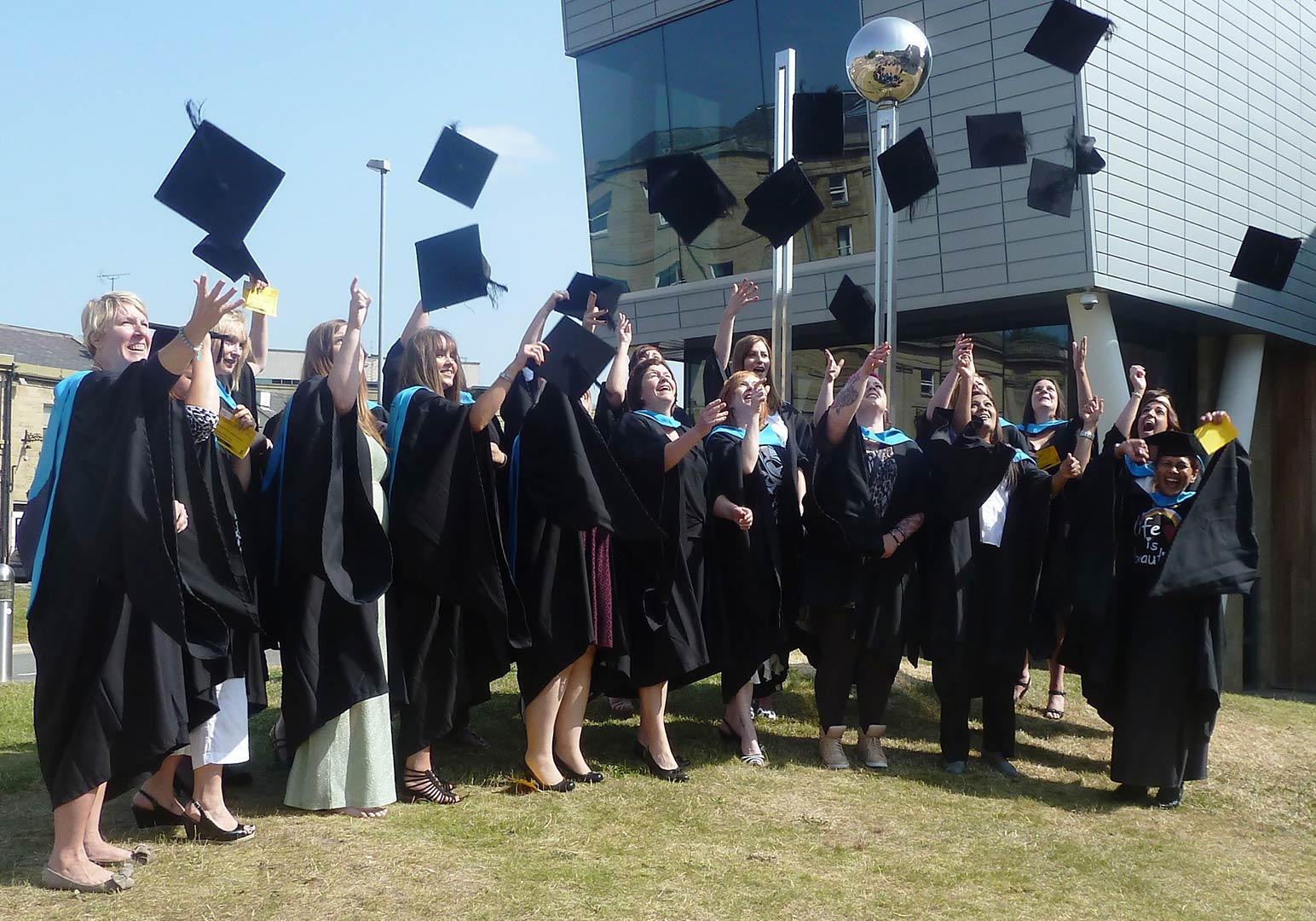Dr Mary Dyer
HudCRES
One year on from the publication of OfSTED's controversial 'Bold Beginnings' report, how do today’s early-years practitioners view their practice, and the learning of the children they work with?
A year ago, OfSTED published the Bold Beginnings report (OfSTED, 2017), characterising Reception class as a place for the learning of essential numeracy and literacy skills, rather than play, and as the foundation for a child’s success in their formal learning. This perception of the final year of Early Years Foundation Stage (EYFS) provision (DfE, 2017), however, appears to undermine the value of play-based learning, by misunderstanding the learning and developmental needs of very young children, ignoring or over-riding the child’s right to play, and to construct their own understanding of their world.
The continued privileging over the last 12 months of the needs of the National Curriculum, and its approach to measuring young children’s learning, also raises the question of how this impacts on practitioners’ professional identity and the agency and autonomy they exercise over their practice?
Baseline assessment is about to be reintroduced (for the third time of trying), as a means of gathering data on children’s progress at a national level, for reasons that have been criticised as unethical and unreliable (Goldstein et al, 2018). The Early Learning Goals (ELGs) of the EYFS are in the process of being reformed, in order to more closely align them with the revised requirements of Key Stage 1 (OfSTED, 2017), rather than to better reflect the learning needs and progress of young children. Phonics testing remains in place despite the criticisms levelled at it by teachers, professional organisations, and academic researchers (for example, Clarke n.d).
Reliance on the quantitative measurement of learning, and the need to codify and regulate practice across the sector suggests a reluctance to acknowledge or trust the professional judgement of the early-years workforce, which includes qualified teachers, undermining their professional expertise and agency, and reframing them as a group whose practice requires external structure and boundaries rather than as experts who can apply specialist knowledge to practice to meet the needs of individual children.
A technical/rational view of early-years practice
Current early years policy can be read as presenting a technical/rational understanding of early-years practice (Schon, 1983), as a series of generic processes and activities which can be enacted on young children in order for them to achieve educational goals. The EYFS framework is a document of two parts. It offers practitioners a national statutory framework within which to practice safely and to a high standard, as well as guidance concerning how young children develop from birth to 5 and what practitioners might expect to see within this developmental journey. However, the good practice, non-statutory, guidance document, Development Matters in the EYFS, and the Early Learning Goals that frame this, have become almost a technical, ‘how to’ guide for practice, so that children’s progress can be mapped against specific outcomes on the EYFS Profile, as a measure of their school readiness. Reliance on such an approach to practice, by either practitioners themselves or regulators, leads to the valuing of compliance rather than professional judgement, a value echoed by the OfSTED-commissioned report that sends a clear message to Reception class practitioners about what they should be doing to meet the requirements of the Key Stage 1 curriculum.
The privileging of Key Stage 1 and its knowledge-oriented curriculum also risks overlooking the statutory underpinning principles of the EYFS. These require that children are to be valued and respected as individuals, and provided with emotionally as well as physically enabling environments, reflecting the central theme of the Plowden Report of nearly 40 years ago, which situated the child rather than curriculum content or assessment data at the heart of the educational process. To do so requires practitioners and teachers who know and understand their children, respect their capacity to construct their own understanding of their world, and have the skill and expertise to work with this so that children’s learning progresses. In other words:
Practice that is based on the underpinning principles of the EYFS requires professional experience, knowledge, and skill to inform judgement. This is what promotes the Characteristics of Effective Learning, again a statutory element in EYFS practice, which sustain a child’s engagement with learning as they progress through formal education.
For such practice to flourish, the discourse of early years policy and regulation needs to acknowledge the professionalism and expertise of the workforce.
Sally Neaum (2016) has argued quite eloquently that current early-years policy promotes a discourse that early years provision exists to serve the requirements of Key Stage 1, a view previously articulated by Michael Wilshaw in his statement (p.3) that early years provision should focus on developing ‘the essential skills that a child needs to start school’.
Just supporting compulsory education?
By defining the early years sector simply as a service to compulsory education rather than as holistic support for the benefit of young children’s development, this renders practitioners and teachers in the EYFS as subordinate and accountable to those in Key Stage 1, rather than as autonomous professionals.
Bernstein (2000) has described this in an educational context as a performance model of pedagogy, which grants the learner little control over what is learnt, emphasises compliance rather than critical reflection and imposes clear overt control over the learning process in the form of regulating and monitoring practice. If the same model is applied to how the EYFS and the ELGs are understood in practice, children’s learning is construed as following a predictable and universal trajectory, and practice can be presented as a technical and measurable process rather than as an ethical matter of affective regard and respect for young children and their learning. To apply such a model to early years policy and practice, and to our construction of children, their learning and their practitioners, not only de-professionalises the workforce but also devalues the child’s agency and autonomy in making sense of their world and potentially compromising their right to play.
A competence model of practice
My own research with graduate practitioners demonstrates the tensions they experience with established definitions of professional status, and their own concept of early years professionalism and their role (Being a professional, or practising professionally?). They understand the latter to be defined in terms of meeting children’s individual learning needs, and the former as based on making strong positive relations where they respect children and the choices they make in their play, using these to identify the learning progress that is being made. Within this context, they assert their own judgement about extending play and shared thinking to enhance learning, but recognise how social and emotional development, positive interactions and support for the development of communication skills underpin successful cognitive development, and facilitate engagement with a learning environment. Their approach to practice reflects Bernstein’s (2000) alternative, a competence model of pedagogy, that values the choices and interests of the learner, focusing on what they can do now and how this can be supported, rather than placing emphasis on what they need to become. Despite working within what can be understood as a performance model of policy and regulation, early-years practitioners enact a competence model of practice.
That they practice much more democratically than the policy context within which they work is a mark of the values they bring to their work. However, they do this as individuals rather than a collective workforce, a factor that has been identified as reducing their control over their status as a profession, and how the standards of their practice are defined. To be able to sustain such a values-driven approach to their practice they need to find ways of articulating this that give it the social legitimacy (Murray, 2013) of a shared professional ethic. Opportunities for the professional socialisation (Lumsden, 2012) that would support the development of this articulation are at present limited for this workforce but are growing with the use of social media platforms, membership of professional associations, and increased engagement in post-graduate education and collaborative research activities. Such engagement will develop confidence across the workforce to challenge policies and reforms they consider detrimental to young children’s learning, and to present an evidence base to support their challenges.

My doctoral research concluded that HEIs and professional organisations have a role to play in supporting the workforce in asserting their professionalism and expertise. This year’s HudCRES In Conversation event, as well as ongoing collaborative research projects within the local early years sector, demonstrate how this process can be started.
Hearing the practitioner voice
As I considered in my previous blog post, the early-years workforce themselves need to continue to mobilise and make their voices heard. Whilst the policy reforms coming on the heels of Bold Beginnings are somewhat alarming, it is heartening to see that the workforce response to the tone and the findings of this report continue to be articulated. Regulators and policy makers continue to be lobbied, and settings and practitioners continue to argue for a competence rather than performance model not only for how they work with the children, but also for how regulators and policy makers work with them.
Moreover, in warning that Reception class for many children was a ‘missed opportunity’ to achieve a ‘good level of development’ (pp. 4, 9), the Bold Beginnings report seems to have ignored national evidence of children’s educational outcomes (DfE, 2018), which demonstrates that for all areas of learning except literacy and numeracy, a good level of development is being achieved by the majority of children, including the skills and understanding that make up the building blocks for these two very specific and complex subject areas. It would appear that the EYFS curriculum framework, and the pedagogy applied in Reception class, have in fact done their jobs in supporting school readiness.
Perhaps what needs realigning is policy makers’ and regulators’ understanding of how children can be introduced to these more formal and complex areas of learning in ways that engage their interest and motivation, and their trust in the skill and professionalism of the practitioners and teachers who can and are delivering this.

